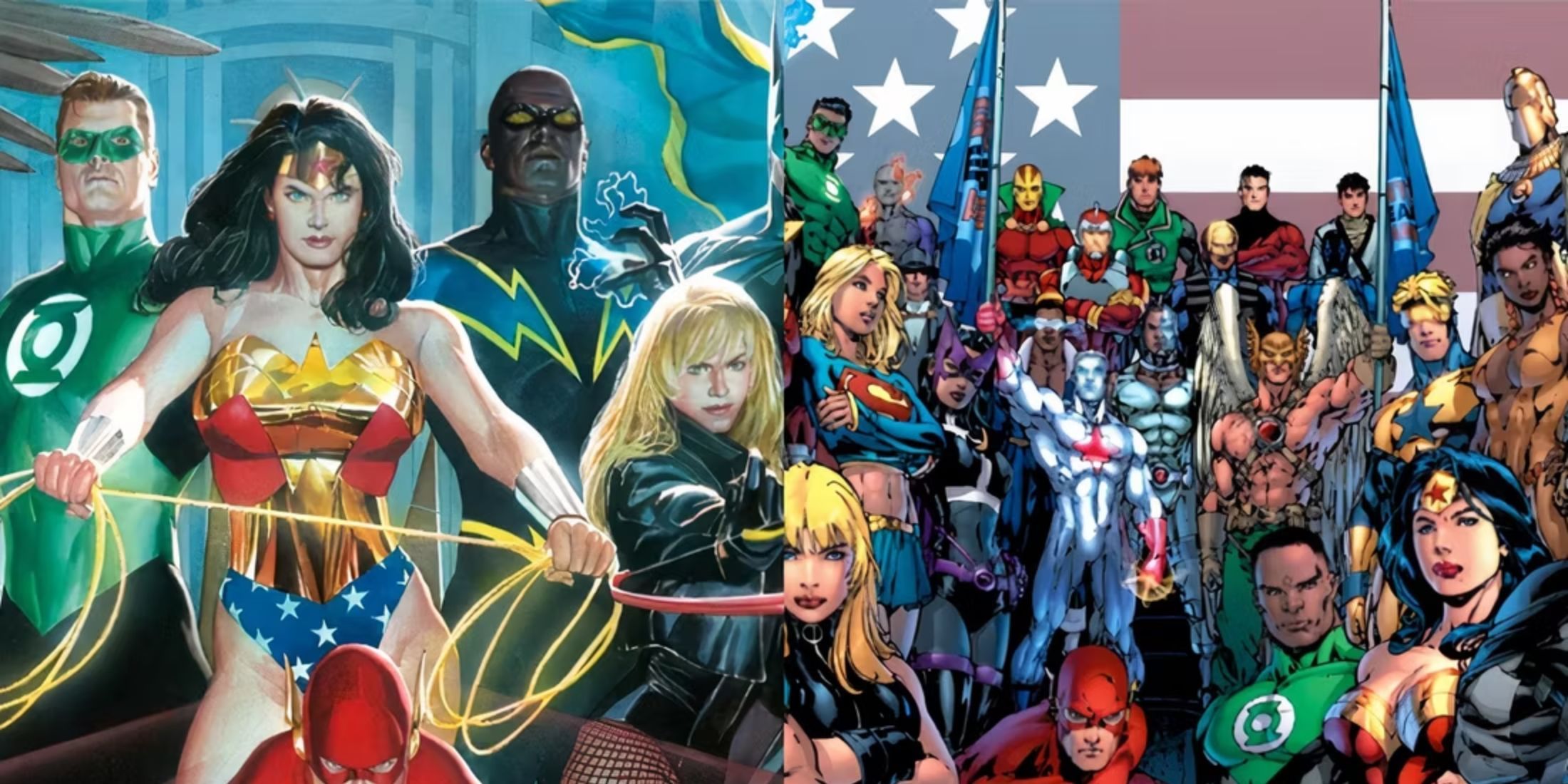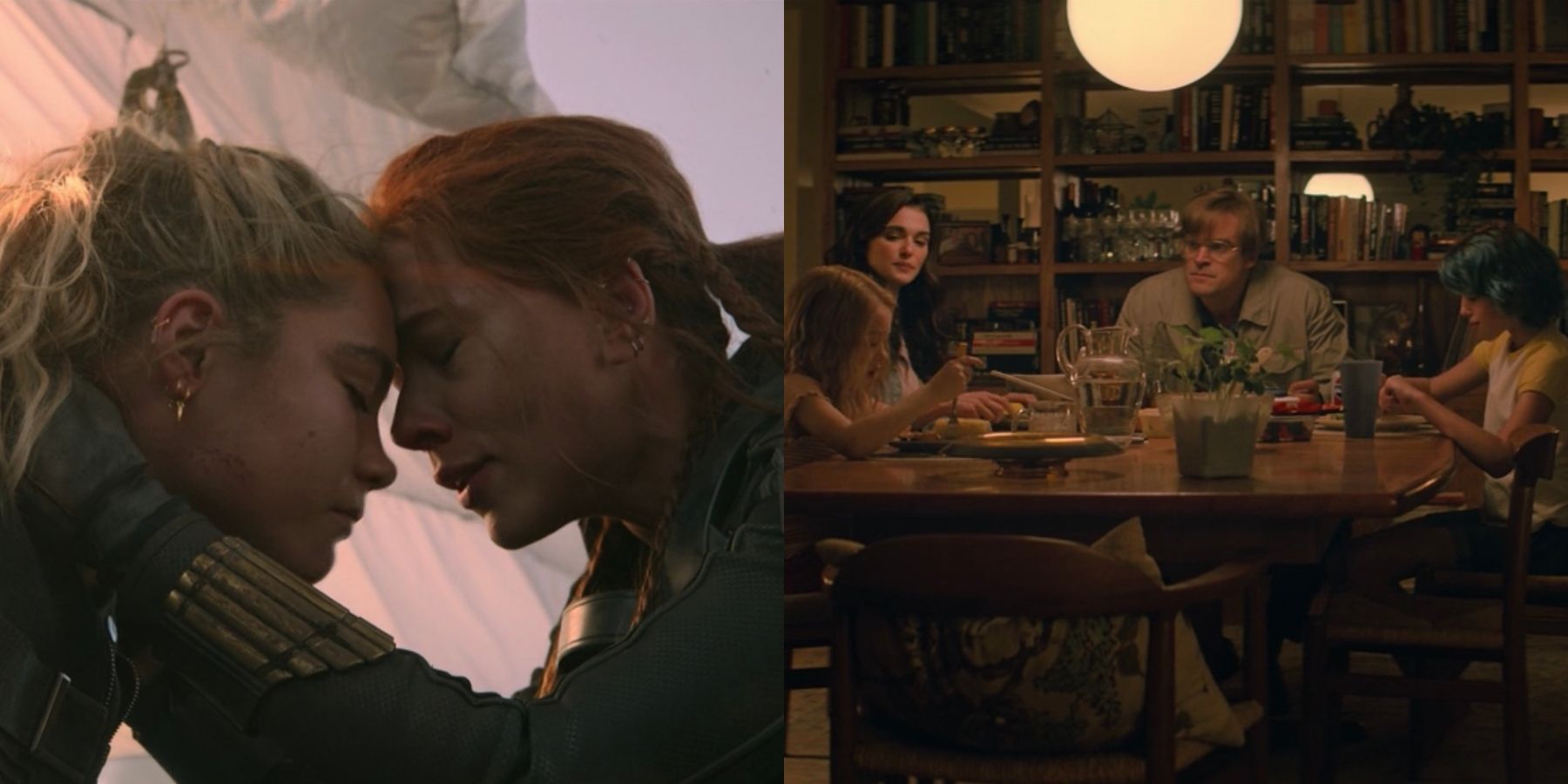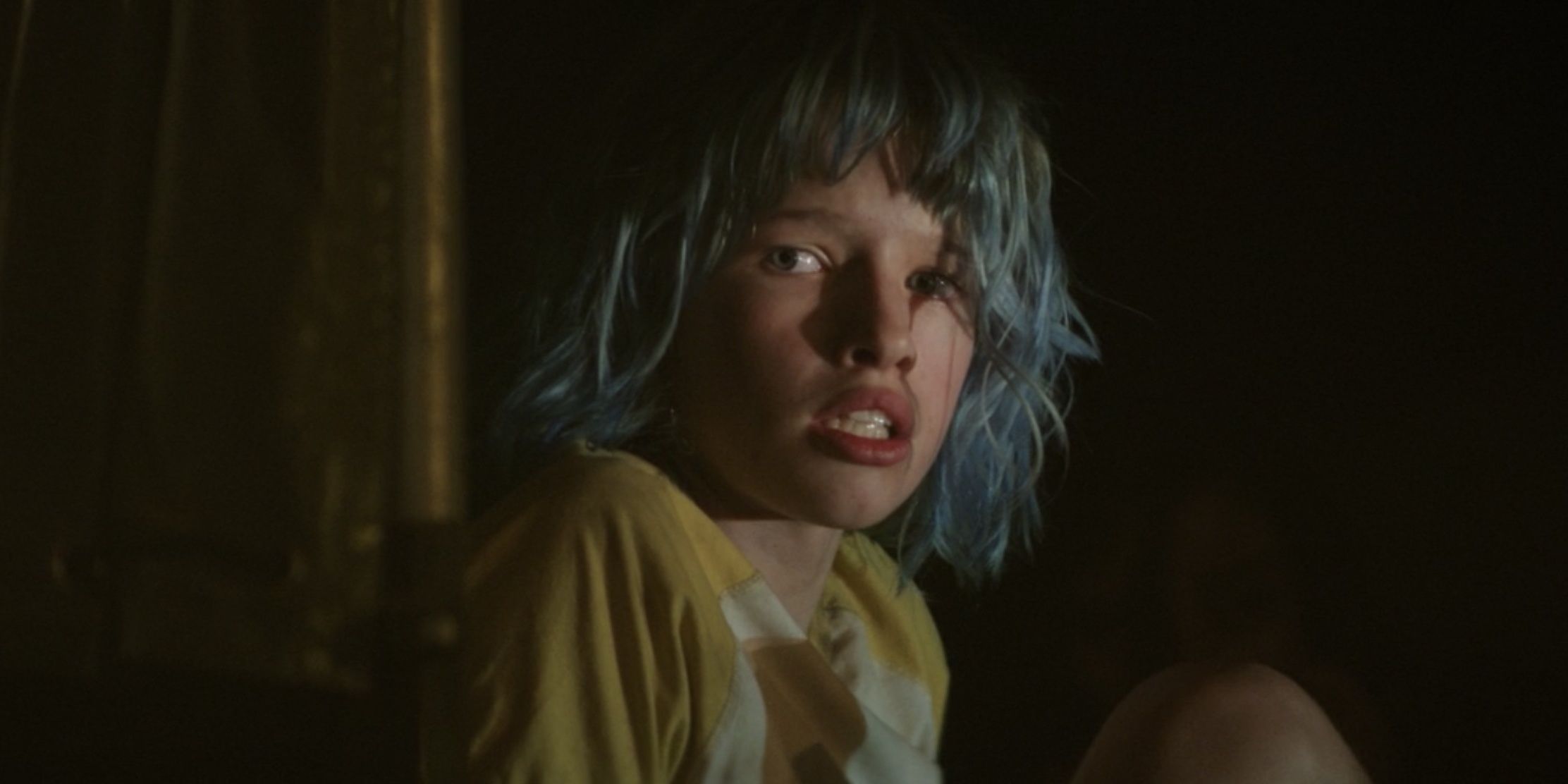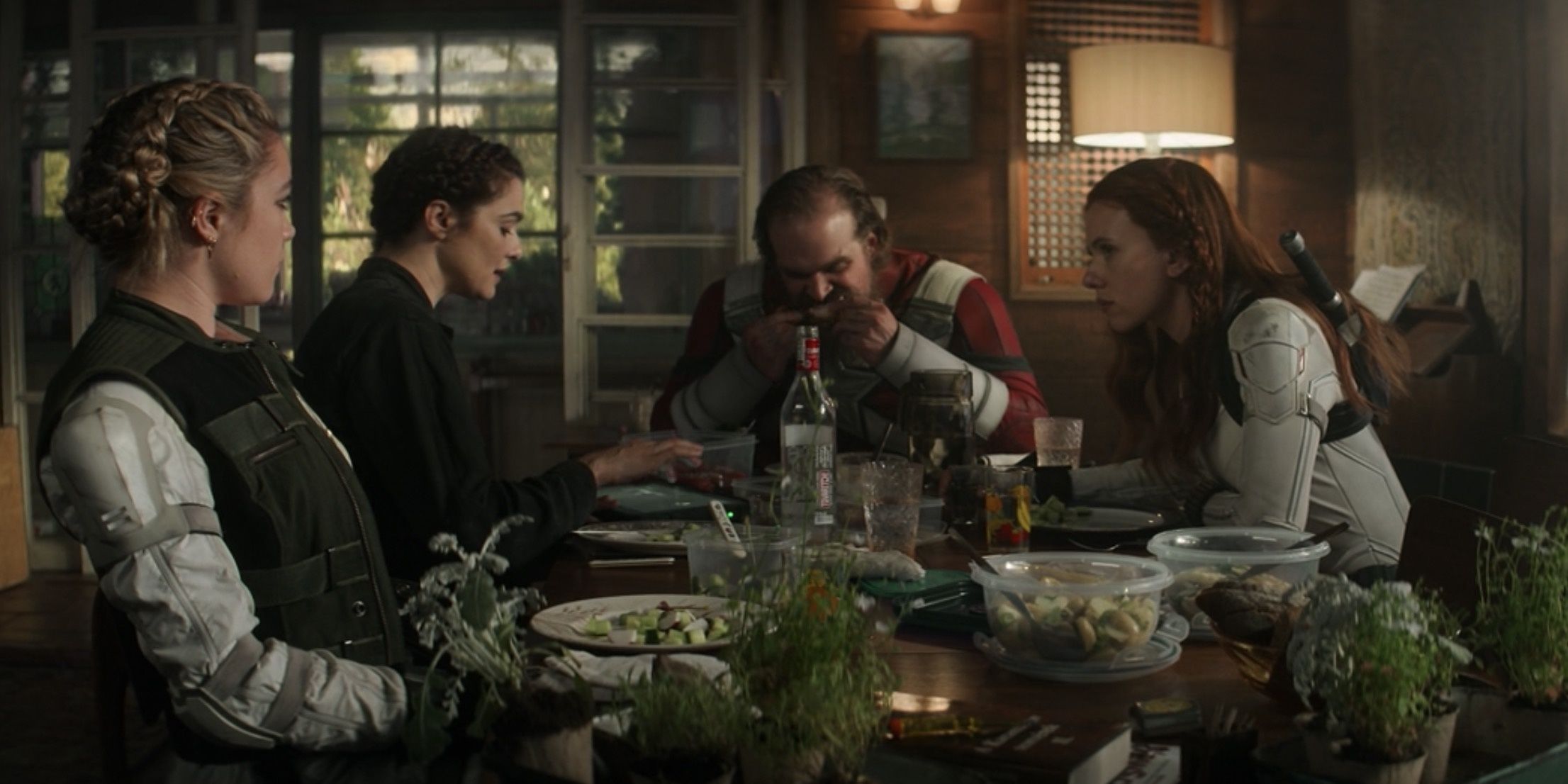The following article contains spoilers for Black Widow.
One of the biggest strengths of the Marvel Cinematic Universe is its ability to balance over-the-top superhero action with compelling themes and emotional drama. And the latest MCU film — the long-awaited Black Widow, available now in theaters and on Disney Plus with premier access — is no exception.
Black Widow takes place immediately after Captain America: Civil War, and has a similar tone and style to the Russo brothers’ Captain America films in general — like Winter Soldier and Civil War, it manages to blend the dramatic tension and high-stakes action of a spy thriller with nuanced, human characterization. Character is very much at the heart of Black Widow, with much of the film’s focus going to Natasha’s internal struggle and her relationship with her newly introduced family.
The film begins setting up Natasha’s close bond to her adoptive family with a flashback depicting her as a child. We see young Natasha’s last moments with her younger sister Yelena and her parents Aleksei and Melina before the family is separated by the film’s main villain, General Dreykov. Just as Natasha is getting used to living an ordinary life, she’s ripped away from her family and forced to become a killing machine in the Red Room program. While Natasha’s dark past has been alluded to in past MCU films, seeing it play out in real-time makes her trauma feel all the more real.
While Natasha would go on to find a new family in the form of the Avengers, the start of the film finds her without her teammates, forced to live as a fugitive after the events of Civil War. She’s come a long way since becoming a hero, but now she feels more alone than ever. However, Natasha’s quickly forced to reconnect with her old family when she’s contacted by Yelena, who enlists her aid in taking down the Red Room once and for all.
Natasha and Yelena’s relationship is prickly at first, but the two sisters quickly reconcile. Unlike past MCU sibling duos like Thor and Loki or Gamora and Nebula, there’s little rivalry to be found between the Black Widow sisters. Of course, they still have their moments of bickering, as most siblings do. But in the end, the emotional core of the film is the relationship between Natasha and Yelena — two women who have gone through incredible suffering, and support one another wholeheartedly in their shared goal of saving others from enduring that same suffering. It’s the kind of tightly-knit bond that women don’t typically share in superhero movies or action movies in general for that matter, but Black Widow pulls it off masterfully.
Of course, Yelena isn’t the only new character in Natasha’s family. Her adoptive parents play a major role as well — the calculating scientist Melina Vostokoff, played by Rachel Weisz, and the boisterous super-soldier Aleksei Shostakov, aka Red Guardian, played by David Harbour. At first, there’s plenty of friction between Natasha and the parents who let her be taken by the Red Room. But while Aleksei and Melina are far from perfect, they prove that they both still care about their daughters. Soon, Natasha finds it in herself to forgive Aleksei and Melina for their past mistakes and join forces with them to stop Dreykov and the Red Room for good.
Natasha begins the film jaded and isolated, convinced that she’s better off alone. But when faced with an enemy she can’t defeat on her own, she’s forced to embrace the family she once rejected, finding strength in the bond she shares with them. Underneath all the fight scenes and explosions, Black Widow is ultimately a film about the importance of family and the power of human connection to make people better. Natasha, Yelena, Aleksei, and Melina are all flawed, broken people who feel lost and abandoned on their own, but manage to find strength and love in each other. By coming together as a family, they aren’t just a tougher team of heroes — they’re happier, kinder people.
The chaotic yet close-knit nature of Natasha’s family is contrasted by Dreykov and his new Black Widow program, which has become even harsher since Natasha’s time in the Red Room. The new generation of Widows is kept in line not just by psychological conditioning, but by literal mind control. Dreykov’s Widows aren’t people to him, they’re nothing more than weapons — a fact that he proudly admits to Natasha. Unlike the heroes, Dreykov finds no joy in human connection: he’s only interested in controlling everyone around him. Natasha even calls him out on this, asking Dreykov how long it’s been since he had a conversation with someone who wasn’t brainwashed. Even Dreykov’s own daughter is nothing but a tool to him, as shown by her conversion into the terrifying Taskmaster.
However, Dreykov’s controlling nature ends up being the key to his downfall. Once Natasha and Yelena free the other Widows from their mind control, they immediately turn on Dreykov. Even Taskmaster is defeated not through a climactic final battle, but by Natasha freeing her from her father’s brainwashing. In many ways, Black Widow is a story about love and loyalty triumphing over fear and control.
This isn’t the first Marvel movie to explore themes of found family, of course. Both Guardians of the Galaxy films are all about family, and even the Avengers are something of a family themselves, as Natasha admits. But even so, Black Widow manages to stand out and find its own identity as a story of reconciliation, forgiveness, and finding comfort and strength in the family you choose.






